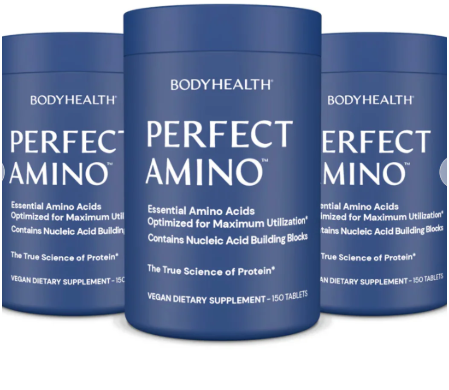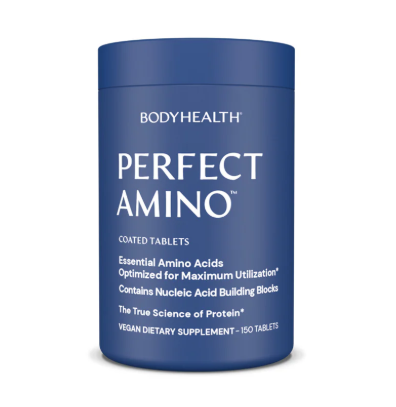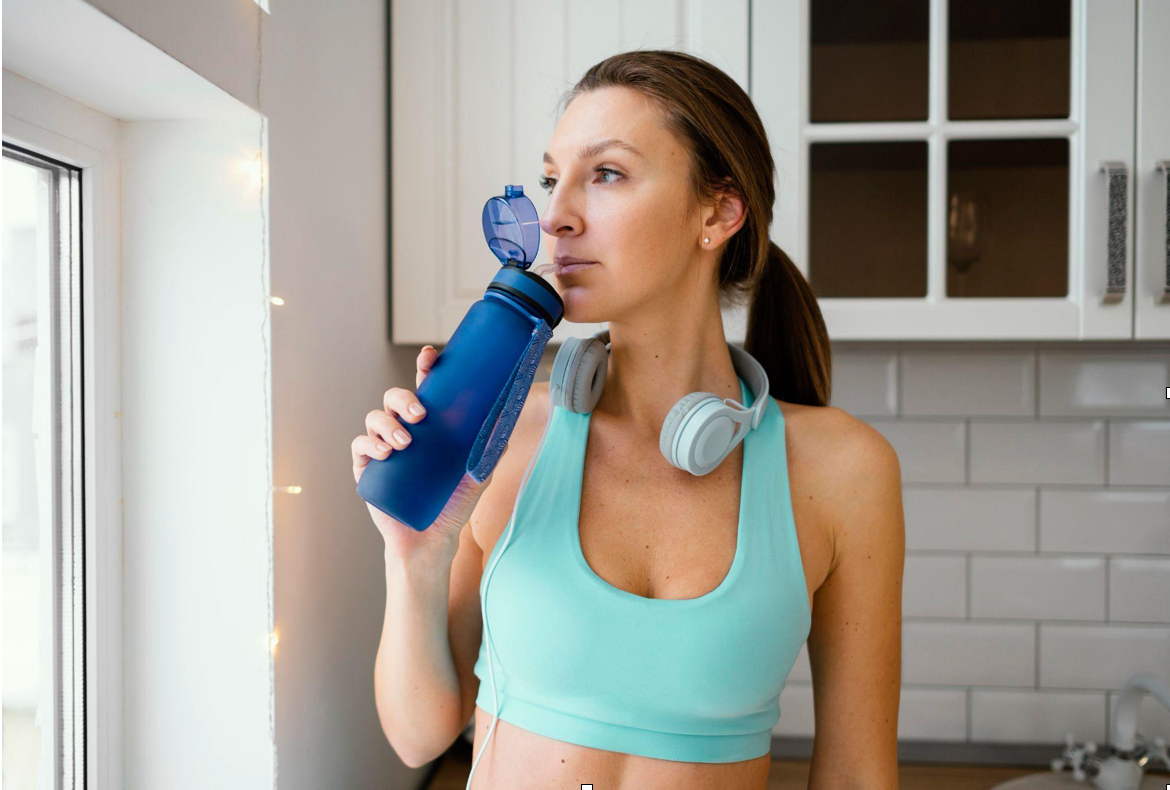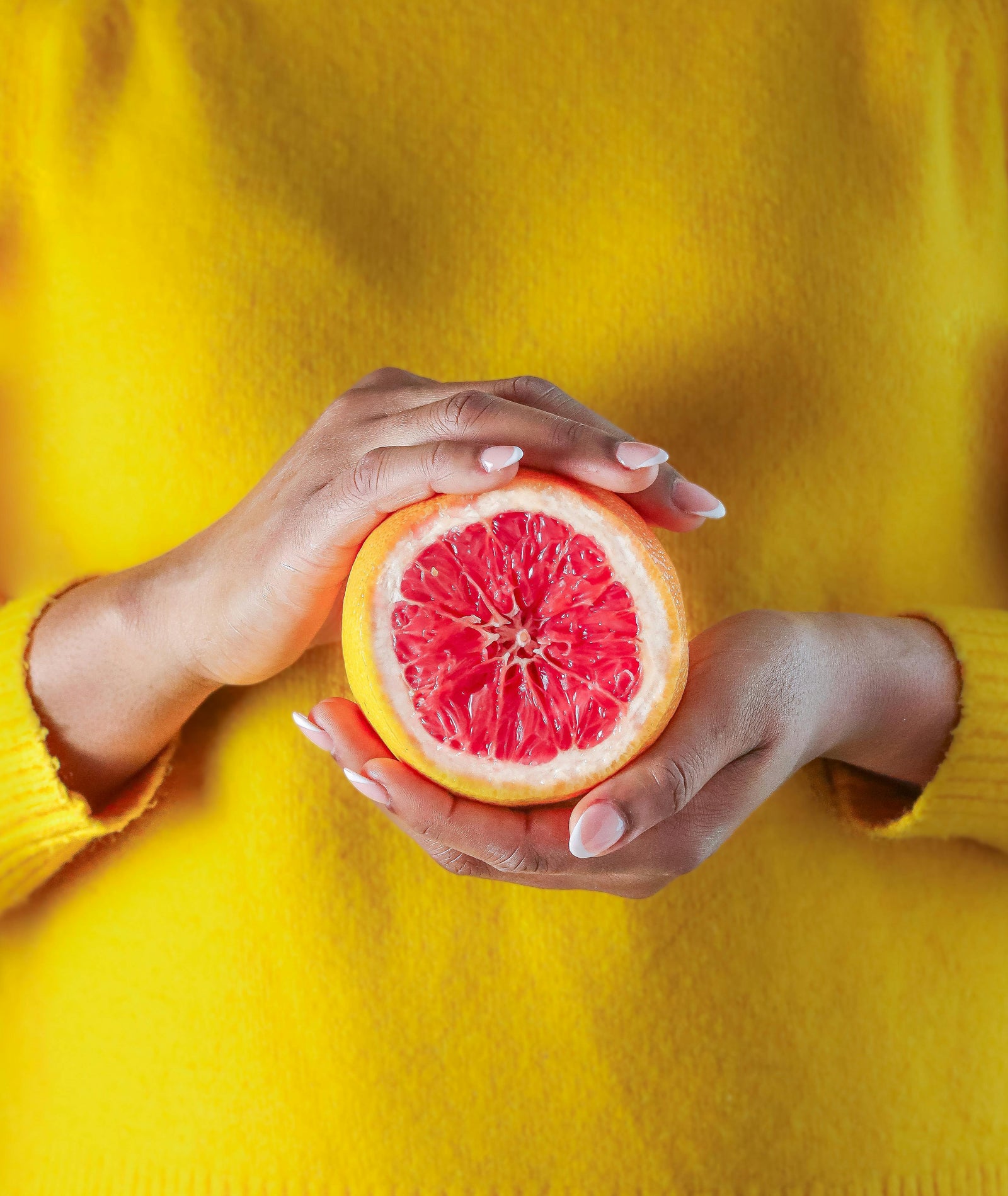Recovery & Sleep
Longevity & Super Food
Immunity & Detox
Healthy Weight
Skin & Oral Care
Health Articles

What Perfect Amino Is Actually Doing In Our Body + Perfect Amino Users Guide
December 08, 2024 9 min read
How does PerfectAmino actually work? And what is it really doing in our bodies?
PerfectAmino is the perfect protein source. But there is a point there. It’s the perfect protein source. It isn’t protein in itself, but amino acids, the building blocks of protein.
When these amino acids are bonded together into chains, that’s when it becomes a protein.
That’s what any protein molecule you eat is — hundreds or thousands of different amino acids all bonded together into a long chain.
But PerfectAmino is different than other protein sources you’ve had. Very different.
You can find the PerfectAmino Users Guide here, which covers how to get the best results depending on what you are trying to achieve.
But to know what it's actually doing in your body, read on.
Here’s a quick explainer before we jump into what it does in our bodies.

What's Causing Cravings For Sugar & Junk Food
December 08, 2024 10 min read
The hardest part of any diet, whether for fat loss, muscle gain or health, is getting over our cravings for sugar and junk food.
There's no question there.
The only real question is how? It can be so hard!
I understand. And in case you feel alone in this struggle — you're not.
It's the hardest part of any diet or lifestyle change, and where most people fall off.
But to know how to fix this we need to know exactly what's causing it.
And one thing I can tell you is not causing it... is you having a "weak will."
That's not it at all.

Toxins, Hormones & Building Muscle
December 08, 2024 5 min read
We've spoken a lot about hormones, but not how toxins affect these.
Testosterone levels have been dropping for decades, while estrogen levels have risen sharply. And thyroid is a huge problem.
Hormonal imbalances are no longer just being deficient in one or another hormone.
There are exact chemicals in the environment, in our food, air, and water, which didn’t exist before, chemicals that block hormones from being created, block them from being able to communicate their instructions to a cell, disrupt their normal actions, or impersonate them entirely.
And while this affects muscle-building and fat loss significantly, its effect goes far beyond this.
In this article we cover what's happening and what you can do about it.

Fuel Your Body Naturally: Top 5 Reasons to Try PerfectAmino Tablets Today
December 03, 2024 2 min read
Read More
Buy PerfectAmino Tablets: Your Online Source for Essential Nutrition
December 03, 2024 2 min read
Read More
What Is Gluten Face & Wheat Belly
October 13, 2024 8 min read
We’ve all heard of gluten.
We’ve heard that it can be bad for us, not bad for us, mildly bad for us, etc.
But what is it really and what does it actually do?
Gluten is a mixture of proteins found in many grains, processed foods and commercial drinks that contain two specific proteins called gliadin and glutenin.
Now, some people know they are sensitive to these, either severely or only mildly, but there are many more who actually are sensitive and experiencing reactions without knowing what’s causing it.

How Toxins Affect The Microbiome & Overall Health
October 13, 2024 5 min read
The amount of toxins coming into our body every day, from the environment and our food and water sources, grows every year. And it is affecting us in many ways.
But one area it affects us quite severely is in our microbiome, where these toxins kill off the beneficial bacteria that help to produce key calming neurotransmitters like GABA and serotonin.
We covered the microbiome in the last article: a colony of trillions of bacteria in our colon, and how it affects every aspect of our health, our hormones, our longevity and the ability to build muscle, lose body fat and stay fit.

Depression, Anxiety, Stress & Sleeplessness — The Microbiome
October 13, 2024 7 min read
Our body's ability to relax, de-stress, recover, and sleep deeply is heavily determined by one area of our body overlooked more often than almost any other — our Microbiome.
This colony of trillions of bacteria living in our large intestine helps produce the calming, relaxing, cortisol-lowering, and sleep-giving neurotransmitters GABA and serotonin.
These bacteria have more to do with our overall health, calmness of mind, nerve function, ability to sleep, ability to burn fat and build muscle, and even our hormones than you might think.
This colony, made up of about 500 different species of bacteria, is called the Microbiome.

Maximize Your Fitness Journey: The Power of Amino-Coated Tablets
October 03, 2024 1 min read

Achieve Peak Performance: Unlock Your Potential with Perfect Amino Drin
October 03, 2024 2 min read
Perfect Amino Drink is not just another supplement; it's a game-changer in the realm of performance optimization. Derived from a precise blend of essential amino acids, Perfect Amino offers a powerful tool to fuel your body, boost recovery, and elevate your performance to new heights. Here's why you should consider incorporating Perfect Amino into your regimen:

Your Road to Whole Daily Nutrition with Perfect Amino Drink Online
October 03, 2024 1 min read

Reducing DOMS: Delayed Onset Muscle Soreness
August 18, 2024 4 min read
Anyone who works out, runs, bikes or does any type of intense exercise, knows about DOMS — Delayed Onset Muscle Soreness.
This is the soreness you feel not right after a workout or exercise, but 24-48 hours later.
At one point it was thought this was caused by lactic acid build up, but this isn’t the case.
Lactic acid is an acid that starts to build up just before we reach our VO2 Max and can’t go any further in our exercise or workout. (VO2 Max is literally the Maximum amount, or Volume, of Oxygen (O2) that your cells can utilize during intense exercise, before you burn out.)
But lactic acid actually helps you. Your body can metabolize it (burn it and use it as fuel).
So what really causes DOMS? And how can we prevent it or lessen it?
Let’s see.
Subscribe
Sign up to get the latest on sales, new releases and more …










